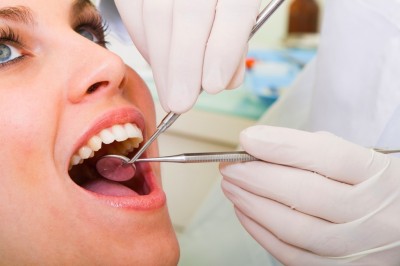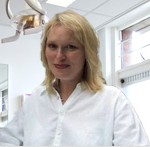Are You at Risk of Developing Mouth Cancer?
Published:August 8th, 2012 The British Dental Health Foundation recently announced details of their mouth cancer action campaign which is designed to raise awareness about this disease. The campaign will take place in November and is being sponsored by Denplan. It aims to increase public awareness and is asking doctors, dentists and pharmacists to help educate the public, as early detection is essential.
The British Dental Health Foundation recently announced details of their mouth cancer action campaign which is designed to raise awareness about this disease. The campaign will take place in November and is being sponsored by Denplan. It aims to increase public awareness and is asking doctors, dentists and pharmacists to help educate the public, as early detection is essential.
There are more than 6,000 new cases of oral cancer diagnosed each year in the UK, and one person will lose their life to this disease every five hours. Dr Nigel Carter OBE, chief executive of the British Dental Health Foundation has stressed the importance of detecting this disease early on. He has pointed out that an examination for mouth cancer should be part of a routine dental checkup, and attending the dentist regularly greatly improves the chances of this disease being detected early on.
Healthcare professionals, particularly dentists have an essential role in educating patients about the risks of mouth cancer. Factors known to increase the risk include smoking, heavy drinking, having a poor diet, and contracting the Human Papilloma Virus. Other risk factors include wearing ill-fitting dentures that irritate the gum tissue, having poor dental hygiene, or suffering from a weakened immune system. Worryingly, the levels of mouth cancer are increasing yearly. Even though the survival rate for oral cancer is 90%, the five-year survival rate can be just 50%.
Early signs of oral cancer
Patients can help themselves by becoming more informed about this disease and by keeping an eye out for any early signs. These include noticing any changes to the colour of the soft tissues within the mouth, such as white or red patches, and keeping an eye on any sore spots which fail to heal within a couple of weeks.
Other signs include noticing lumps that are initially painless, but may go on to develop pain as the cancer advances. Oral cancer can also cause problems with chewing as a tumour can move the teeth out of position, or can make it painful to swallow.
Reduce your risks of developing this disease
Seeing your dentist at six monthly intervals will greatly improve your chances of early detection. Your dentist will examine your tongue, gums and oral tissues to make sure everything looks normal, and they’ll also feel the lymph nodes in your neck to make sure they’re not swollen.
In between dental appointments try to get into the habit of conducting a self-examination every few weeks as you’ll get to know what is normal and will be more aware of any small changes. If you do have an ulcer or sore spot that fails to heal after a few weeks then it’s always best to seek medical advice.
The chances of you having oral cancer are extremely slight, but it’s always better not to take this risk. Making sure you avoid smoking and drinking to excess, and looking after your teeth and gums will also help. However around a quarter of all oral cancers are found in people with no known risk factors.
About the author
 Alison, is a UK born and educated dental professional with over 25 years experience.
Alison, is a UK born and educated dental professional with over 25 years experience.




Write a Comment of Are You at Risk of Developing Mouth Cancer?